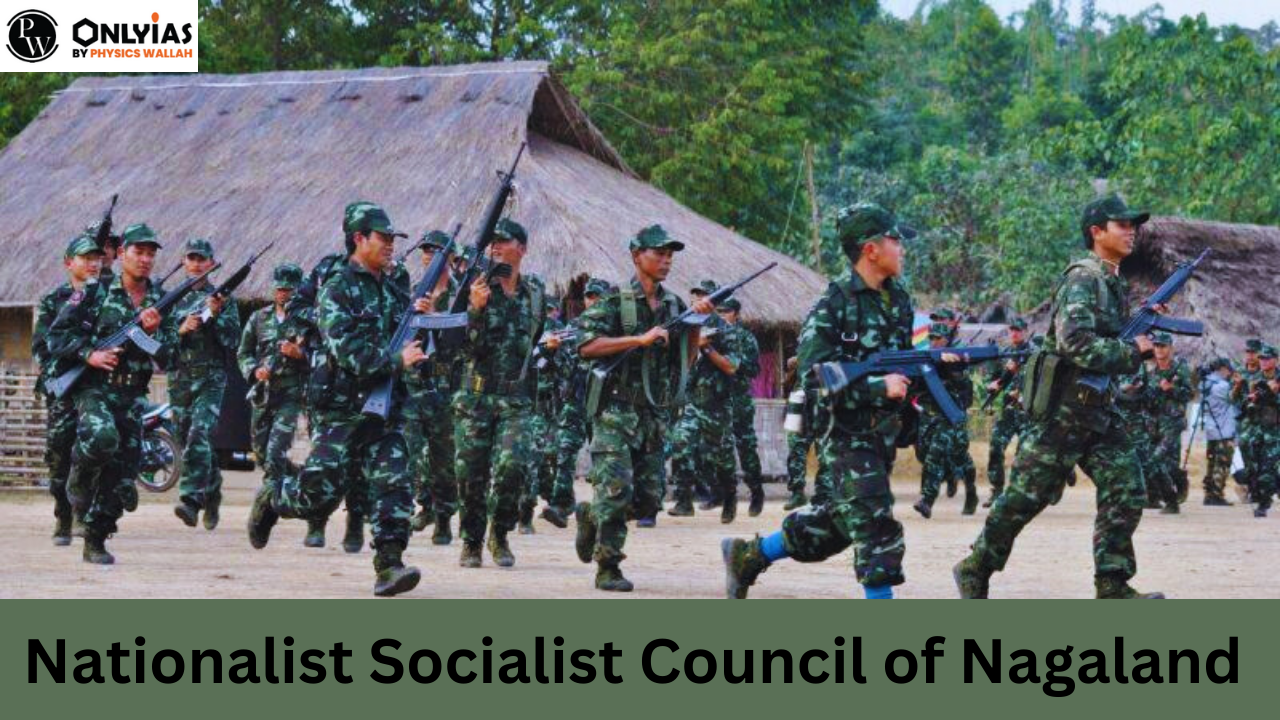The full form of NSCN is National Socialist Council of Nagaland. Learn about the National Socialist Council of Nagaland (NSCN), its history, objectives, and involvement in the Naga conflict. Explore the complexities of this insurgent group and its impact on the northeastern region of India.

The National Socialist Council of Nagaland (NSCN) is a prominent insurgent group operating in the northeastern Indian state of Nagaland and some of the neighboring states. It has played a significant role in the conflict in the region and has been involved in negotiations with the Indian government. The NSCN is known for its demands for greater autonomy and the establishment of a separate Naga homeland.
The NSCN stands for National Socialist Council of Nagaland. NSCN is one of the most prominent insurgent groups in the northeastern region of India. It was formed in 1980 with the merger of two factions, the NSCN (Isak-Muivah) and the NSCN (Khaplang), although these two factions later split again in 1988.
| NSCN Full Form | |
| Full Form | National Socialist Council of Nagaland (NSCN) |
| Formation Date | January 31, 1980 |
| Founders | Isak Chisi Swu, Thuingaleng Muivah, S.S. Khaplang |
| Objective | To seek greater autonomy and self-determination for the Naga people. |
| Ideological Basis | Combination of socialism for economic development and a spiritual outlook, often expressed as ‘Nagaland for Christ.’ |
Here are some key points about the NSCN:
The NSCN was formed in 1980 in opposition to the ‘Shillong Accord’ signed between the Naga National Council (NNC) and the Indian government. The NSCN’s primary aim is the establishment of a ‘Greater Nagaland’ and its ideology incorporates elements of socialism and a spiritual outlook, often described as ‘Nagaland for Christ.’
The division of the NSCN into two major factions, NSCN (K) and NSCN (I-M), has played a significant role in the complex dynamics of the Naga conflict. These factions have had differing approaches to negotiations with the Indian government.
The involvement of the NSCN in illegal activities like drug trafficking, extortion, and robberies for financial support has raised concerns both within India and internationally. These activities have had social and security implications in the region.
NSCN has sought support and funding from various international sources, which has added complexity to the conflict.
The Naga conflict remains a significant issue in the northeastern region of India, and efforts toward a peaceful resolution continue through negotiations and discussions with the various stakeholders involved.
The National Socialist Council of Nagaland (NSCN) was created in response to the dissatisfaction of certain Naga groups with the ‘Shillong Accord’ of 1975. Here’s why the NSCN was formed:
The National Socialist Council of Nagaland (NSCN) was formed on January 31, 1980. It was established by Isak Chisi Swu, Thuingaleng Muivah, and S.S. Khaplang in opposition to the ‘Shillong Accord’ signed between the Naga National Council (NNC) and the Indian government. The NSCN’s formation marked a significant development in the Naga conflict and the pursuit of its objectives for greater autonomy and self-determination.
Nagaland has seen the presence of several insurgent groups over the years, each with its own set of objectives and ideologies. The number of insurgent groups operating in Nagaland has fluctuated due to factors such as peace talks, mergers, splits, and evolving dynamics. Here are the some of the prominent insurgent groups in Nagaland :
National Socialist Council of Nagaland (NSCN): The NSCN itself consists of two major factions, NSCN (Isak-Muivah) and NSCN (Khaplang), although they have had their own internal splits and factions as well.
National Democratic Front of Bodoland (NDFB): Although primarily based in the neighboring state of Assam, the NDFB has also had a presence in parts of Nagaland.
United Liberation Front of Assam (ULFA): Like the NDFB, ULFA is mainly based in Assam but has had interactions with groups in Nagaland.
Other Smaller Groups: Nagaland has witnessed the presence of various smaller insurgent groups and factions, each with its own agenda and objectives.
The National Socialist Council of Nagaland (NSCN) is an insurgent group in northeastern India, primarily active in the state of Nagaland. It was formed in 1980 and is known for its demands for greater autonomy and the establishment of a sovereign Naga state.
NSCN was formed in opposition to the 'Shillong Accord' signed by the Naga National Council (NNC) with the Indian government. The leaders of NSCN believed that the accord did not fulfill the aspirations of the Naga people for political and cultural rights.
NSCN's primary objectives include seeking greater autonomy for the Naga people and the creation of a 'Greater Nagaland.' Its ideology combines elements of socialism for economic development and a spiritual outlook, often expressed as 'Nagaland for Christ.'
NSCN has been involved in armed insurgency against the Indian government. It has also reportedly engaged in activities such as extortion, bank robberies, and drug trafficking to obtain financing.
NSCN remains active, but the dynamics within the group, including splits and mergers, have made the situation complex. Negotiations and peace talks continue to be part of the efforts to resolve the Naga conflict.

<div class="new-fform">
</div>